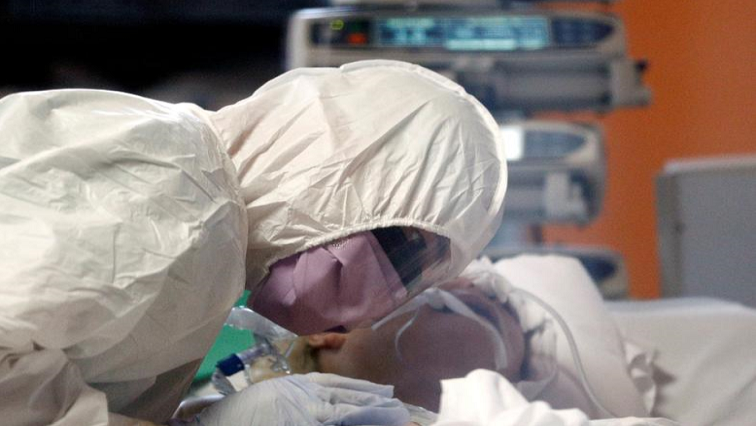Tens of thousands of South African healthcare workers are on the frontline of the global war against COVID-19. Many are in the unenviable position of fighting the pandemic, at the risk of their own lives and those of their families.
SABC News captures their voices in this weekly feature, COVID-19 Frontline Workers. This week, Digital News producer Lebo Tshangela (LT) speaks to Sister Eldah Radebe(ER), who owns a clinic in Freedom Park, Soweto, about her and her staff’s experience with the coronavirus on day 21 of the nationwide lockdown.
LT: South Africa’s lockdown began on March 27, but healthcare workers are among those who provide essential services. I asked Sister Radebe how she feels about having to work during the lockdown.
ER: It’s scary and I feel unprotected.
LT: Dozens of healthcare workers have contracted the COVID-19 virus in different parts of the country. In one of the worst cases, St Augustine’s Hospital in Durban, closed its doors after more than 40 staff members tested positive. Two more cases of mass infections have since been reported in a Mediclinic in Johannesburg and Netcare Kingsway, south of Durban. Sister Radebe says she dreads contracting COVID-19.
ER: My fear is that I will contract this disease, especially because I don’t have protective clothing. I went to many shops. They say the protective clothing is finished, even where we buy our medication. If you find it [then], it’s very expensive.
LT: With the growing demand for Private Protective Equipment amid the pandemic, there is a universal shortage. In one example, a report in the Washington Post reports the US government’s emergency stockpile of respirator masks, gloves and other medical supplies is running low and is nearly exhausted, while on Tuesday, South Africa received medical equipment from China. Among other things, the donations included masks, medical protective gowns and disposable gloves. As an owner of a medical facility, Radebe says, she is directly affected.
ER: We are calling on government to assist private clinics with Private Protective Equipment, such as gloves and masks as we have a lot of clients and we need to be protected. We don’t know who has tested positive for COVID-19 or not.
LT: While many companies have had to rethink the way they work, by either setting up remotely or putting a pause on operations, the healthcare field is even busier. However, according to Sister Hadebe, this has not necessarily been good for business. She says her practice has to juggle with assisting the needy and dealing with employees’ own fears which have affected their professionalism.
ER: The challenges are that I’m rendering a private service but if people are not working you can’t refuse to treat them and turn them away. Most of my clients are street vendors and they come to me and say, ‘I’m having flu but I don’t have money’, what do you think I can say to them? ‘no go home because you don’t have money. They don’t have it. The only clinic we have in the area is Freedom Park Clinic and it’s always full, so people rush to me and they can’t afford to pay for the services. I will give them everything but I’m not going to be compensated. In other words, I’m working at a loss. Some people who are working with me say they cannot come because they are scared of contracting the virus as there are no protective clothes. I can’t force them to come.
Government efforts for protective equipment
With hospitals and clinics at the centre of the fight against COVID-19, government has had to work towards ensuring their protection. Efforts to do so include the massive mobilisation of South African business, labour, academics and government agencies – which have been called upon to build stocks of medical and other equipment needed to fight coronavirus. President Cyril Ramaphosa told the nation on Thursday that R1-billion had been donated to the Solidarity Fund to purchase relevant equipment.
South Africa’s COVID-19 responses in stages

Loading…
Related: Part 1 COVID-19 Frontline Workers: Q&A with a South African doctor
Related: Part II COVID-19 Frontline Workers: Nurses share stories






